
Mazar-i-Sharif: The Jewel of Northern Afghanistan
Mazar-i-Sharif, located in the northern part of Afghanistan, is a city known for its rich history, vibrant culture, and stunning architecture. This city, whose name translates to 'Noble Shrine,' is a major pilgrimage site due to the famous Blue Mosque, also known as the Shrine of Ali. The mosque's turquoise domes and intricate tile work make it one of the most beautiful landmarks in the entire region and a must-visit for any traveler. Apart from its religious significance, Mazar-i-Sharif offers a glimpse into the heart of Afghan culture. The city is bustling with local markets, where you can find everything from traditional Afghan carpets to fresh fruits and spices. The local bazaars are a sensory overload, filled with the sounds of haggling vendors and the scents of exotic spices. For history enthusiasts, the city offers several historical sites and museums. The Balkh Museum, located nearby, houses artifacts that date back to the ancient city of Balkh, often referred to as the 'Mother of Cities.' The ruins of Balkh are a short drive from Mazar-i-Sharif and provide a fascinating look into one of the oldest cities in the world. Nature lovers will also find much to appreciate in Mazar-i-Sharif. The nearby landscapes offer opportunities for hiking and exploring the rugged beauty of northern Afghanistan. The city's parks, such as the sprawling Wazir Akbar Khan Park, provide a peaceful escape from the bustling city life. In summary, Mazar-i-Sharif is a city that blends history, culture, and natural beauty, making it a unique and enriching destination for tourists.
Local tips in Mazar-i-Sharif
- Visit the Blue Mosque early in the morning to avoid crowds and enjoy the tranquility.
- Dress modestly, especially when visiting religious sites, to respect local customs.
- Try the local cuisine, including dishes like Kabuli Pulao and Mantu, at one of the traditional restaurants.
- Hire a local guide to explore the ancient ruins of Balkh for a more informative experience.
- Check the security situation before planning your visit, as the region can be volatile.
- Learn a few basic phrases in Dari or Pashto to help communicate with locals.
Mazar-i-Sharif: The Jewel of Northern Afghanistan
Mazar-i-Sharif, located in the northern part of Afghanistan, is a city known for its rich history, vibrant culture, and stunning architecture. This city, whose name translates to 'Noble Shrine,' is a major pilgrimage site due to the famous Blue Mosque, also known as the Shrine of Ali. The mosque's turquoise domes and intricate tile work make it one of the most beautiful landmarks in the entire region and a must-visit for any traveler. Apart from its religious significance, Mazar-i-Sharif offers a glimpse into the heart of Afghan culture. The city is bustling with local markets, where you can find everything from traditional Afghan carpets to fresh fruits and spices. The local bazaars are a sensory overload, filled with the sounds of haggling vendors and the scents of exotic spices. For history enthusiasts, the city offers several historical sites and museums. The Balkh Museum, located nearby, houses artifacts that date back to the ancient city of Balkh, often referred to as the 'Mother of Cities.' The ruins of Balkh are a short drive from Mazar-i-Sharif and provide a fascinating look into one of the oldest cities in the world. Nature lovers will also find much to appreciate in Mazar-i-Sharif. The nearby landscapes offer opportunities for hiking and exploring the rugged beauty of northern Afghanistan. The city's parks, such as the sprawling Wazir Akbar Khan Park, provide a peaceful escape from the bustling city life. In summary, Mazar-i-Sharif is a city that blends history, culture, and natural beauty, making it a unique and enriching destination for tourists.
When is the best time to go to Mazar-i-Sharif?
Iconic landmarks you can’t miss
Shrine of Hazrat Ali
Discover the Shrine of Hazrat Ali in Mazar-i-Sharif: a mesmerizing oasis of blue tilework, golden domes, and profound Islamic history.
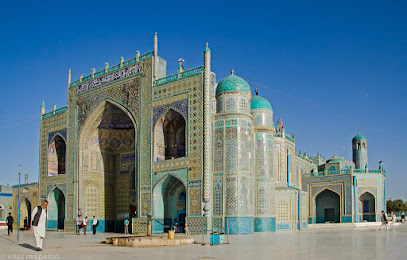
Kefayat Super Market
Experience local life at Kefayat Super Market in Mazar-i-Sharif: fresh produce, Afghan flavors, and unique souvenirs await!
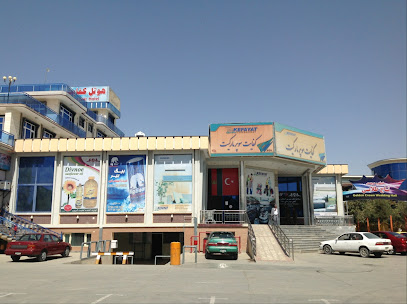
Almas Wedding Hall سالون عروسی الماس
Celebrate your special day in style at Almas Wedding Hall, Mazar-i-Sharif's premier venue for unforgettable weddings and events.
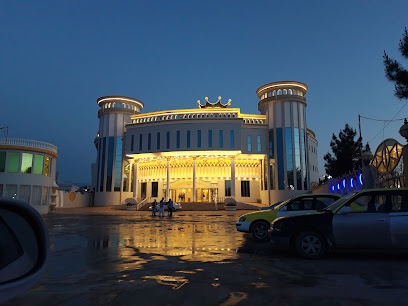
Mazar-i-Sharif International Airport
Northern Afghanistan's primary air gateway, connecting Mazar-i-Sharif to the world.
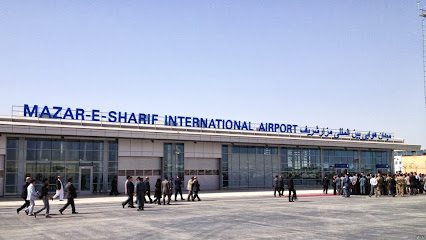
Khalid Bin Walid Family Park
Escape to tranquility at Khalid Bin Walid Family Park in Mazar-i-Sharif, a green haven for relaxation, recreation, and community engagement.
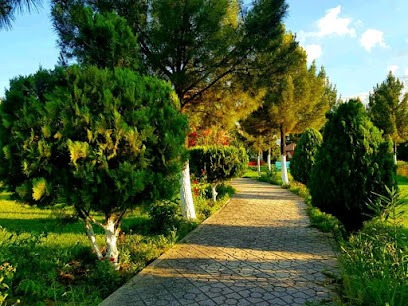
Rawza e Mubarak Museum
Discover Afghanistan's cultural heritage at the Rawza e Mubarak Museum in Mazar-i-Sharif, a gateway to the region's past.
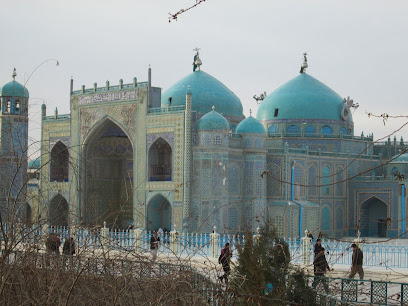
Buzkashi Ground
Experience the thrill of Buzkashi, Afghanistan's national sport, at this vibrant venue showcasing Afghan heritage and the enduring spirit of its people.
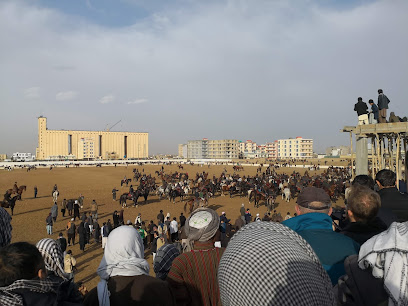
مجتمع ورزشی و تفرحیی شناوران Swimmers
Stay fit and connect with the local community at Swimmers Gym in Mazar-i-Sharif, a modern fitness hub open daily for locals and tourists!
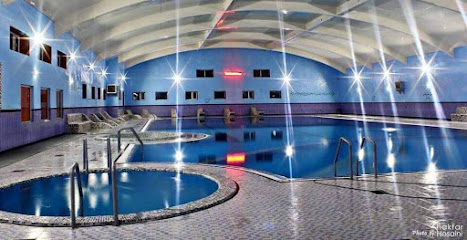
Kamgar Garden باغ کامگار
Discover tranquility in Mazar-i-Sharif at Kamgar Garden, a serene escape offering lush greenery and a glimpse into Afghan culture and community.
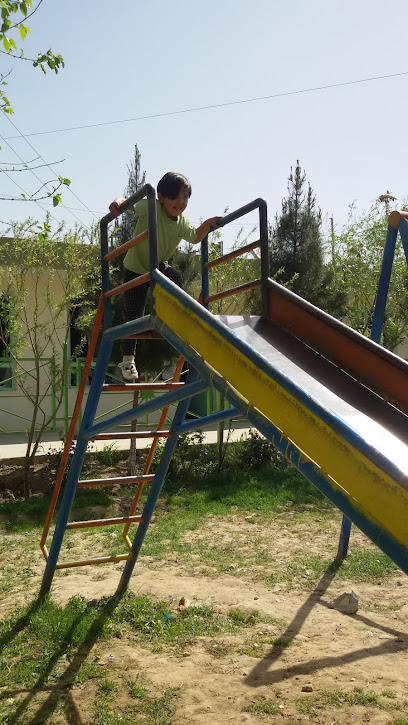
Baba Qamber Masjed
Discover the spiritual heart of Mazar-i-Sharif at Baba Qamber Masjed, a serene mosque embodying Afghanistan's rich Islamic heritage.
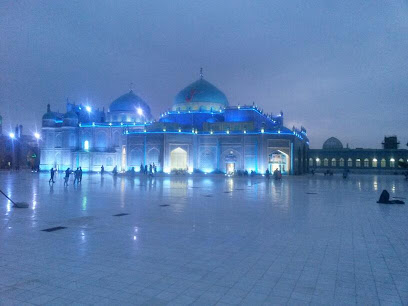
مسجد پارسا اول
Discover Parsa No1 Mosque in Mazar-i-Sharif: A serene landmark embodying Afghanistan's Islamic heritage and architectural artistry.

Stadiam
Experience the vibrant sports culture and community spirit at Stadiam, Mazar-i-Sharif's premier stadium and cultural landmark.
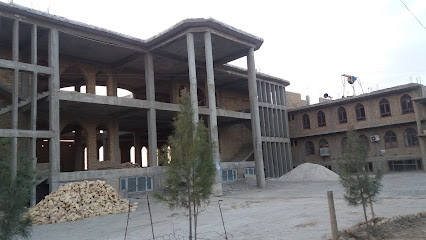
Rabia Balkhi Memorial یادگاه رابعه بلخی
Explore the legacy of Rabia Balkhi, a 10th-century Persian poet, at her memorial in Mazar-i-Sharif, a symbol of Afghan culture and resilience.
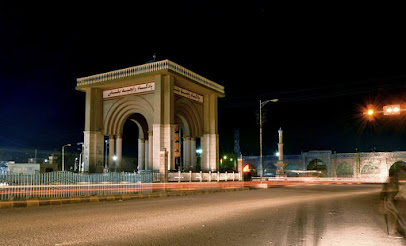
Masjed Jame Hazrat-e Abulfazl
Discover the spiritual beauty and architectural charm of Masjed Jame Hazrat-e Abulfazl in Mazar-i-Sharif, Afghanistan. A cultural gem!

Eteefaq Masjed
Discover the serene beauty and spiritual essence of Eteefaq Masjed, a cultural gem in Mazar-i-Sharif, Afghanistan.
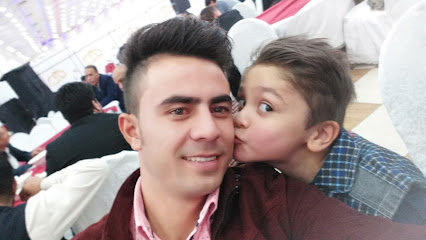
Unmissable attractions to see
Shrine of Hazrat Ali
Discover the spiritual heart of Mazar-i-Sharif at the Shrine of Hazrat Ali, a mesmerizing oasis of Islamic history, culture, and stunning blue tilework.
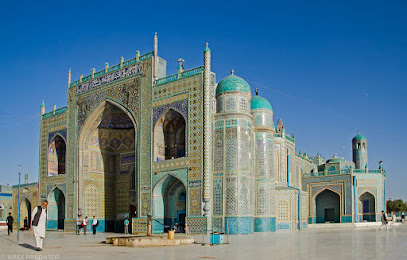
Khalid Bin Walid Family Park
Escape to Khalid Bin Walid Family Park in Mazar-i-Sharif for recreation, relaxation, and a vibrant community atmosphere for all ages.
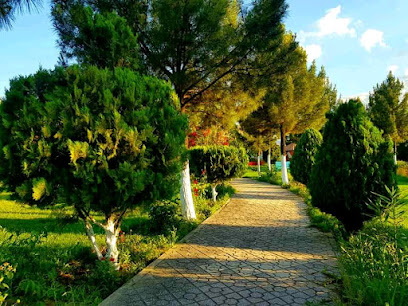
Rawza e Mubarak Museum
Discover Afghanistan's rich cultural heritage at the Rawza e Mubarak Museum in Mazar-i-Sharif.
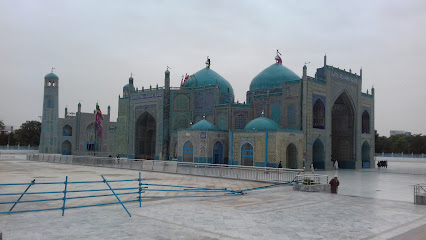
Kamgar Garden باغ کامگار
Escape to tranquility at Kamgar Garden in Mazar-i-Sharif, a beautiful oasis offering a serene retreat and a glimpse into Afghan culture.
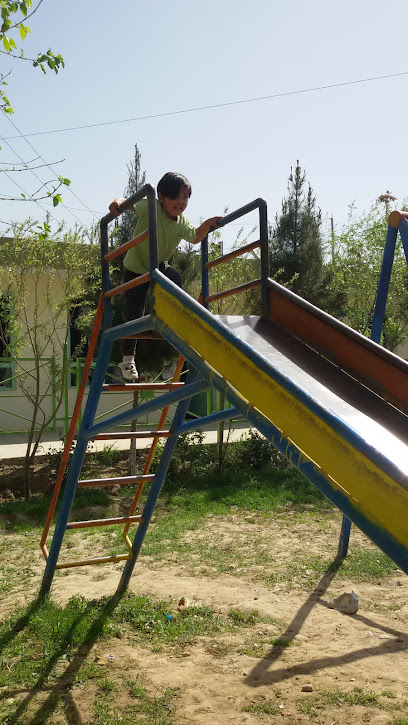
Essential places to dine
King Hotel
Experience authentic Afghan cuisine at King Hotel – a culinary gem in Mazar-i-Sharif that combines tradition with comfort.
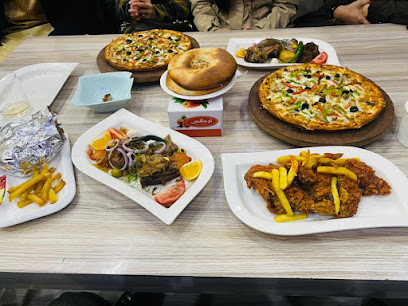
رستورانت و مهمان سرای بلخ باستان Balkh e Bastan Restaurant
Discover authentic Afghan cuisine at Balkh e Bastan Restaurant in Mazar-i-Sharif – where tradition meets flavor.
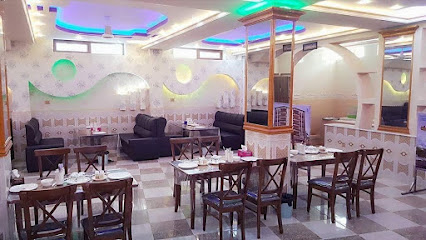
Jaihoon Resturant جیحون رستورانت
Experience authentic Afghan cuisine at Jaihoon Restaurant in Mazar-i-Sharif - where tradition meets flavor in every dish.
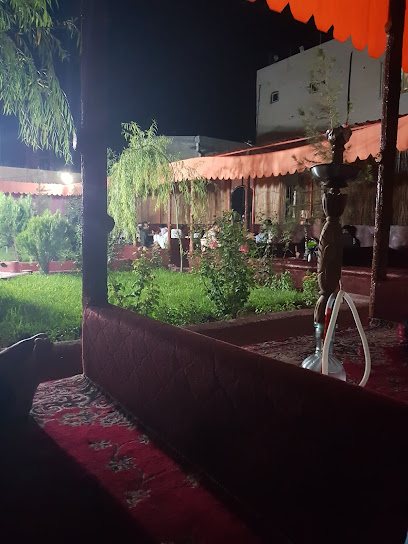
Bilal Restaurant
Discover the rich flavors of Afghanistan at Bilal Restaurant in Mazar-i-Sharif, where tradition meets taste in every dish.
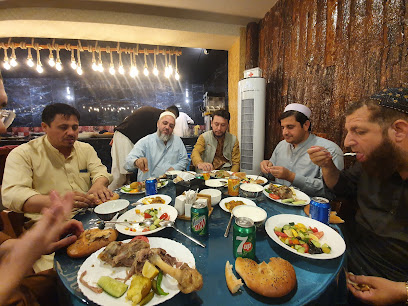
Chicken hot restaurant
Discover authentic Afghan flavors at Chicken Hot Restaurant in Mazar-i-Sharif - where every bite tells a story.
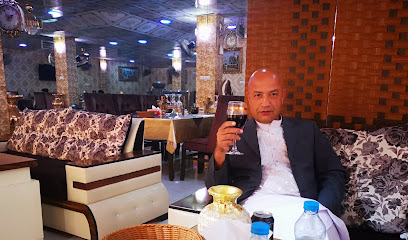
حکیم رستورانت
Savor authentic Afghan cuisine at حکیم رستورانت in Mazar-i-Sharif - a true culinary delight blending tradition and flavor.
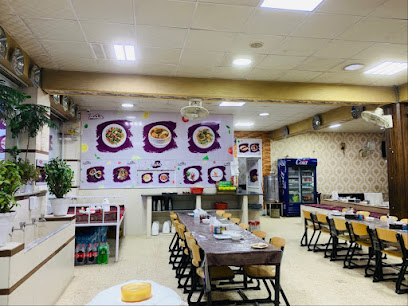
رستورانت برادران
Experience authentic Afghan cuisine at رستورانت برادران in Mazar-i-Sharif - where tradition meets flavor.
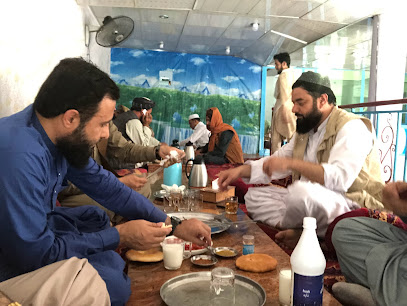
Mazar Pizza
Experience authentic Afghan flavors at Mazar Pizza in Mazar-i-Sharif – where every slice tells a story!
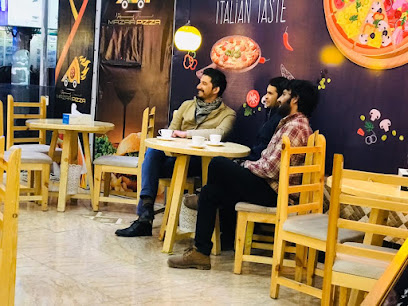
احسان پلو
Discover authentic Afghan cuisine at Ihsan Pollo in Mazar-i-Sharif - A culinary gem blending tradition with flavor.
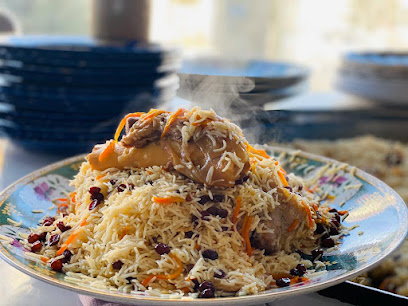
Mazar Nan Restaurant مزار نان
Experience the rich flavors of Afghanistan at Mazar Nan Restaurant - your gateway to authentic Afghan dining in Mazar-i-Sharif.
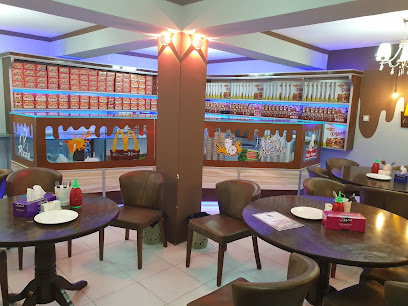
رستورانت پارس
Experience authentic Afghan cuisine at رستورانت پارس in Mazar-i-Sharif – where tradition meets taste.

رستورانت یونیک Unique Restaurant
Discover authentic Afghan cuisine at Unique Restaurant in Mazar-i-Sharif - where every dish tells a story.
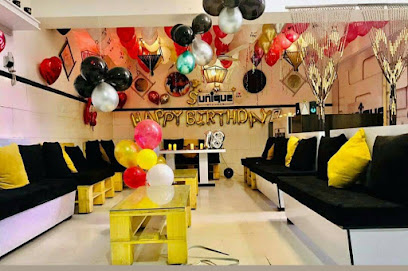
One More Restaurant
Experience the rich flavors of Afghanistan at One More Restaurant in Mazar-i-Sharif - where tradition meets taste.
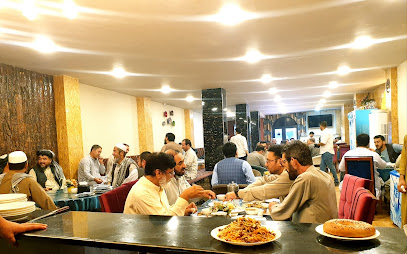
Bostan Balkh
Discover the authentic flavors of Afghanistan at Bostan Balkh, Mazar-i-Sharif's premier dining destination offering delightful cuisine and warm hospitality.
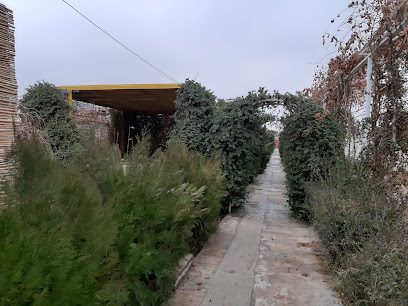
Chif Restaurant
Experience authentic Afghan cuisine at Chif Restaurant in Mazar-i-Sharif – where tradition meets flavor in every dish.

Markets, malls and hidden boutiques
Hafiz Jewelery
Discover the exquisite craftsmanship of Afghan jewelry at Hafiz Jewelry in Mazar-i-Sharif, where tradition meets elegance in every piece.
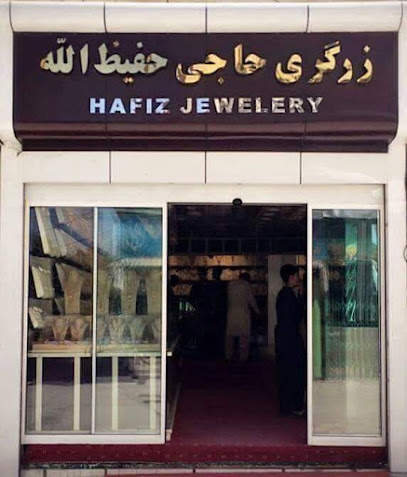
کارته صلح
Experience the charm of Afghanistan at کارته صلح, where local crafts and unique gifts reflect the rich cultural heritage of Mazar-i-Sharif.

مارکیت رابعه بلخی Rabeha Balkhi Market
Explore the bustling Rabeha Balkhi Market in Mazar-i-Sharif for an authentic shopping experience filled with local culture, crafts, and cuisine.

صایم سوپرمارکیت
Discover a treasure trove of local goods and delightful flavors at صایم سوپرمارکیت in Mazar-i-Sharif, a must-visit shopping destination for tourists.

Mazari Sharif
Explore Mazari Sharif: A vibrant destination in Afghanistan, offering unique shopping, rich culture, and historical landmarks.
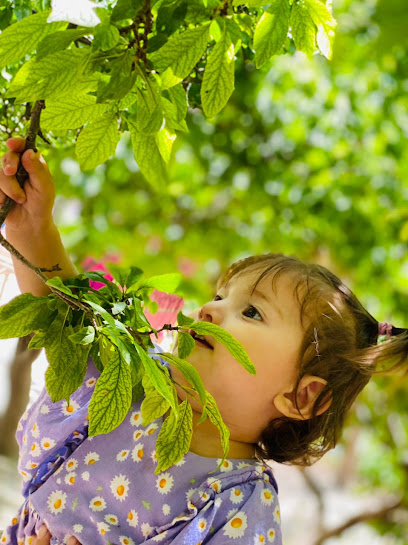
زرگری امین نظری و برادران
Discover exquisite Afghan jewelry at Amin Nazari and Brothers, where tradition meets artistry in the heart of Mazar-i-Sharif.
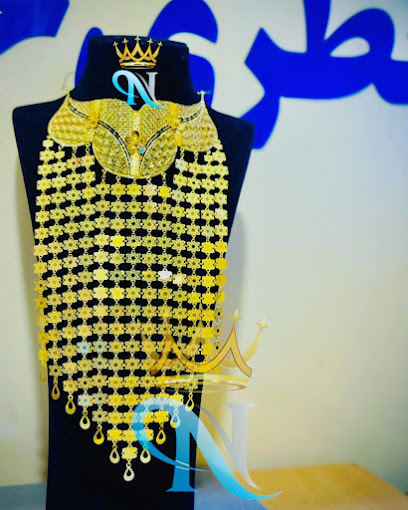
شیر پیره فروشی روح الله
Discover the unique offerings of شیر پیره فروشی روح الله, a charming general store in Mazar-i-Sharif, where local culture meets delightful shopping.

قرطاسیه فروشی خجندی
Explore خجندی, a unique stationery store in Mazar-i-Sharif, Afghanistan, showcasing local artistry and a treasure trove of creative supplies.
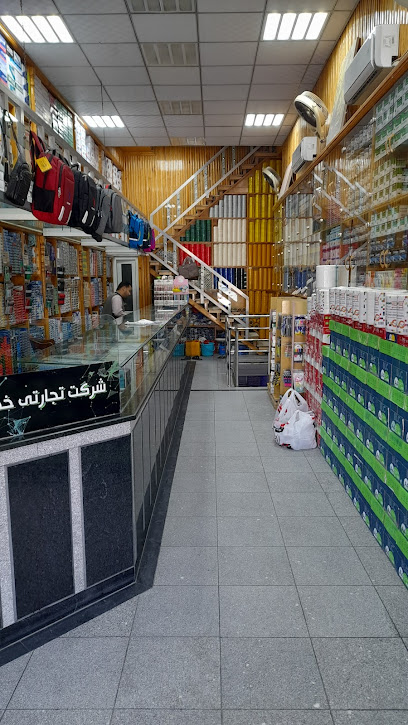
خوراکه فروشی کربلایی امین
Discover the authentic flavors of Afghanistan at خوراکه فروشی کربلایی امین, a delightful grocery store in Mazar-i-Sharif.

فروشگاه حاجی عنایت الله و برادران
Explore the rich heritage at حاجی عنایت الله و برادران Store, Mazar-i-Sharif, where tradition meets vibrant craftsmanship.
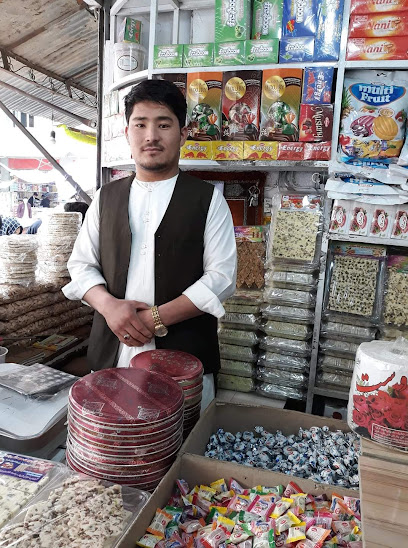
دکان قنادی کربلایی سلطان
Experience the sweetness of Afghan culture at دکان قنادی کربلایی سلطان, a grocery store offering a variety of traditional sweets and snacks.

خوراکه فروشی عبدالامین
Experience the authentic flavors of Afghan cuisine at Abdul Amin's Food Store in Mazar-i-Sharif, a culinary gem rich in tradition and hospitality.

Yawar buisness market مارکیت تجارتی یاور
Discover the authentic shopping experience at Yawar Business Market in Mazar-i-Sharif, where local culture and vibrant commerce come together.

مارکت بلخی
Explore the exquisite craftsmanship of traditional and modern footwear at مارکت بلخی, a premier shoe store in Mazar-i-Sharif, Afghanistan.
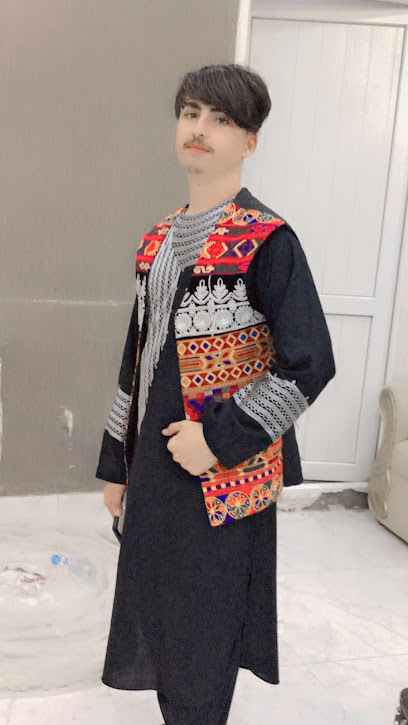
KHOJANDI LTD.
Explore Khojandi Ltd. in Mazar-i-Sharif for unique Afghan crafts and souvenirs that capture the spirit of local culture.

Essential bars & hidden hideouts
King Hotel
Experience authentic Afghan cuisine at King Hotel Restaurant, a culinary delight in Mazar-i-Sharif, where tradition meets comfort.
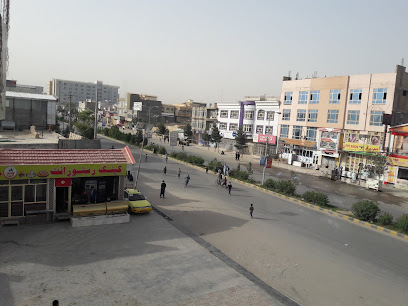
رستورانت و مهمان سرای بلخ باستان Balkh e Bastan Restaurant
Experience the authentic flavors of Afghanistan at Balkh e Bastan Restaurant in Mazar-i-Sharif, where every meal is a cultural celebration.
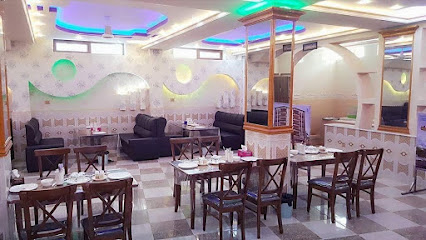
Jaihoon Resturant جیحون رستورانت
Experience authentic Afghan cuisine at Jaihoon Restaurant in Mazar-i-Sharif, where flavors meet culture in a welcoming atmosphere.
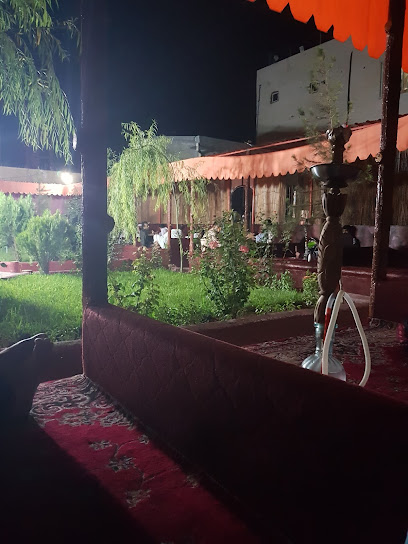
Bilal Restaurant
Discover authentic Afghan cuisine at Bilal Restaurant in Mazar-i-Sharif, a delightful spot for food lovers seeking a taste of local culture.
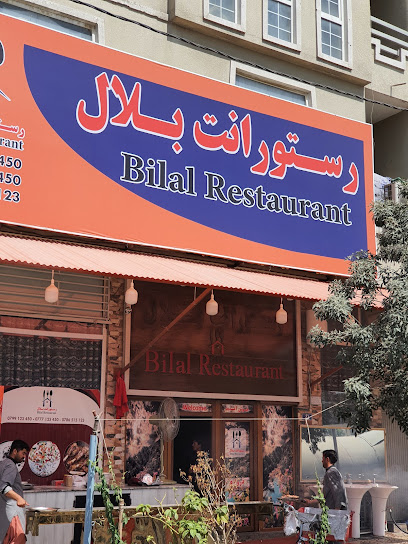
ALBAiK BROST البیک بروست
Savor the authentic taste of Afghanistan at ALBAiK BROST, where delicious grilled chicken and local flavors await you.
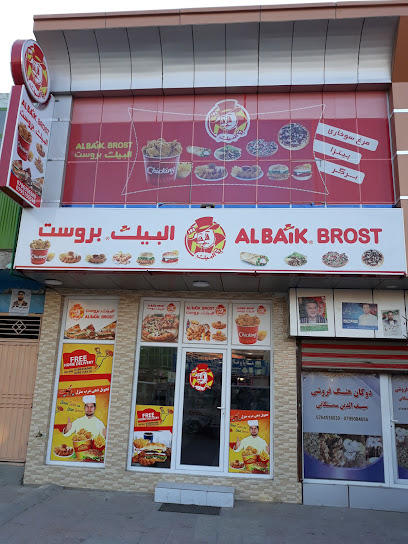
حکیم رستورانت
Experience the authentic taste of Afghan cuisine at Hakim Restaurant in Mazar-i-Sharif, where tradition meets flavor in every dish.
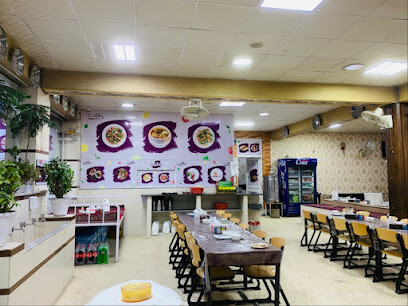
رستورانت برادران
Experience authentic Afghan flavors at Brothers Restaurant in Mazar-i-Sharif, where traditional cuisine meets warm hospitality.
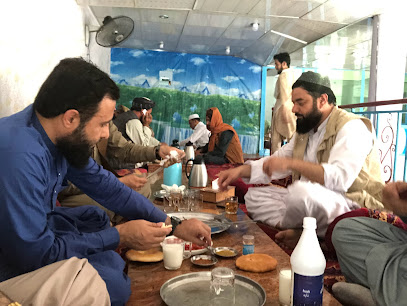
Mazar Pizza
Discover the best pizza in Mazar-i-Sharif at Mazar Pizza, where local flavors meet delicious comfort food in a welcoming atmosphere.
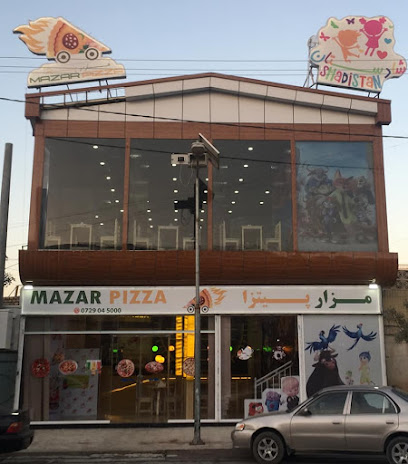
احسان پلو
Discover authentic Afghan cuisine at احسان پلو, a must-visit restaurant in Mazar-i-Sharif for an unforgettable dining experience.
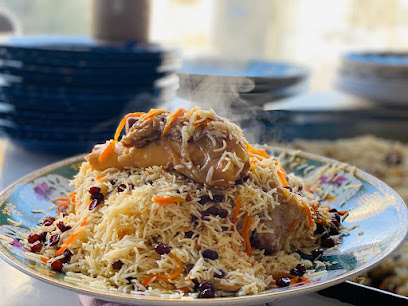
Mazar Nan Restaurant مزار نان
Discover the rich flavors of Afghanistan at Mazar Nan Restaurant, where authentic cuisine meets a warm, inviting atmosphere in Mazar-i-Sharif.
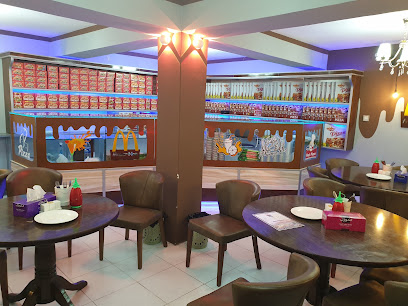
رستورانت پارس
Experience the authentic taste of Afghan cuisine at رستورانت پارس, a culinary gem in Mazar-i-Sharif, offering a warm atmosphere and delicious dishes.

رستورانت یونیک Unique Restaurant
Discover Unique Restaurant in Mazar-i-Sharif, where Afghan flavors meet international culinary delights in a warm, inviting atmosphere.
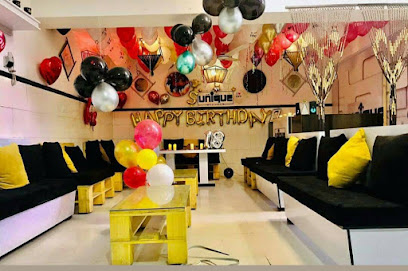
One More Restaurant
Experience authentic Afghan cuisine at One More Restaurant in Mazar-i-Sharif, where flavors and hospitality meet in a cozy setting.
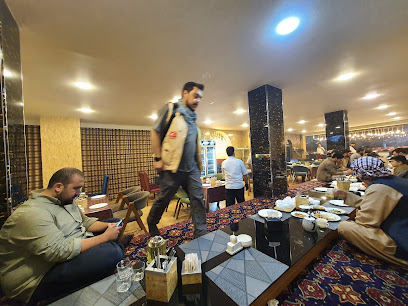
کارته آریانابلاکاولکوچهچهار
Experience the rich flavors of Afghan cuisine at کارته آریانابلاکاولکوچهچهار in Mazar-i-Sharif, where authenticity meets hospitality.

سیرت رستورانت
Experience the rich flavors of Afghanistan at Sirat Restaurant in Mazar-i-Sharif, where authentic dishes meet warm hospitality.
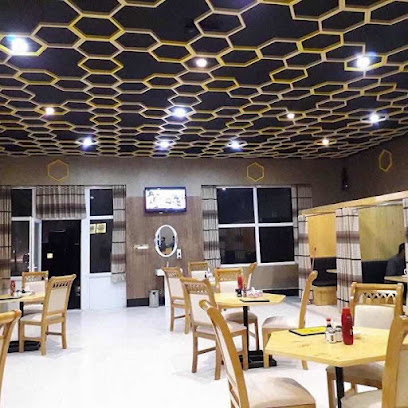
Local Phrases
-
- Helloسلام
[salaam] - Goodbyeخداحافظ
[khuda hafiz] - Yesآره
[are] - Noنه
[na] - Please/You're welcomeمهربانی
[mehrbaani] - Thank youتشکر
[tashakur] - Excuse me/Sorryببخشید
[bebakhshid] - How are you?چطوری؟
[chetoori?] - Fine. And you?خوبم. شما؟
[khobam. shoma?] - Do you speak English?آیا شما انگلیسی حرف میزنید؟
[aya shoma englisi harf mizanid?] - I don't understandمن نمیفهمم
[man nemifahmam]
- Helloسلام
-
- I'd like to see the menu, pleaseلطفاً منو را میخواهم ببینم
[lotfan menu ra mikhwaham bebinam] - I don't eat meatمن گوشت نمیخورم
[man goosht nemikhoram] - Cheers!سلامتی!
[salamati!] - I would like to pay, pleaseلطفاً میخواهم پرداخت کنم
[lotfan mikhwaham pardakht konam]
- I'd like to see the menu, pleaseلطفاً منو را میخواهم ببینم
-
- Help!کمک!
[komak!] - Go away!برو!
[boro!] - Call the Police!پلیس را صدا کنید!
[polis ra seda konid!] - Call a doctor!یک دکتر بخوانید!
[yek doctor bakhahid!] - I'm lostگم شدم
[gom shodam] - I'm illبیمار هستم
[bimar hastam]
- Help!کمک!
-
- I'd like to buy...میخواهم خرید کنم...
[mikhwaham kharid konam...] - I'm just lookingفقط نگاه میکنم
[faqat negah mikonam] - How much is it?قیمت چقدر است؟
[ghimat chand ast?] - That's too expensiveخیلی گران است
[kheili goran ast] - Can you lower the price?میتوانید قیمت را کاهش دهید؟
[mitavanid ghimat ra kahesh dahid?]
- I'd like to buy...میخواهم خرید کنم...
-
- What time is it?چند است؟
[chand ast?] - It's one o'clockیک است
[yek ast] - Half past (10)نیمه (ده)
[nimeh (dah)] - Morningصبح
[sobh] - Afternoonبعدازظهر
[bad az zohr] - Eveningعصر
[asr] - Yesterdayدیروز
[dirooz] - Todayامروز
[emrooz] - Tomorrowفردا
[farda] - 1یک
[yek] - 2دو
[do] - 3سه
[se] - 4چهار
[char] - 5پنج
[panj] - 6شش
[shesh] - 7هفت
[haft] - 8هشت
[hasht] - 9نه
[noh] - 10ده
[dah]
- What time is it?چند است؟
-
- Where's a/the...?کجاست؟
[kojast?] - What's the address?آدرس چیست؟
[adres chist?] - Can you show me (on the map)?میتوانید به من نشان دهید (روی نقشه)؟
[mitavanid be man neshan dahid (ruye naghshe)?] - When's the next (bus)?بعدی کی است؟
[badhi key ast?] - A ticket (to ....)یک بلیط (به ...)
[yek bilit (be ...)]
- Where's a/the...?کجاست؟
History of Mazar-i-Sharif
-
Mazar-i-Sharif, translated as 'The Noble Shrine,' is believed to have been founded in the 12th century by the Seljuk Sultan Ahmed Sanjar. The city grew around the reputed tomb of Hazrat Ali, the cousin and son-in-law of the Prophet Muhammad, which is enshrined in the Blue Mosque, also known as the Shrine of Ali.
-
The Blue Mosque, or the Shrine of Ali, is the most iconic landmark of Mazar-i-Sharif. Built in the 15th century by Sultan Husayn Mirza Bayqarah, it is renowned for its stunning blue tiles and intricate Islamic architecture. The mosque is a major pilgrimage site for Shia Muslims and attracts visitors from around the world.
-
During the Timurid Empire (1370-1507), Mazar-i-Sharif flourished as a center of culture and learning. The city benefited from the patronage of Timurid rulers, who promoted the arts, architecture, and scholarship. The Blue Mosque was expanded and renovated during this period, further enhancing its splendor.
-
In the 20th century, Mazar-i-Sharif experienced significant development, becoming one of Afghanistan's major cities. It served as a strategic location during various conflicts, including the Soviet-Afghan War and the subsequent civil war. Despite these challenges, the city has continued to grow and develop, with new infrastructure and amenities being added regularly.
-
Mazar-i-Sharif is known for its vibrant cultural festivals, most notably the Nowruz (New Year) celebrations. Held annually in March, the festival marks the beginning of spring and includes various cultural activities, music, dancing, and a traditional game called Buzkashi. The city comes alive with colorful decorations and a festive atmosphere during this time.
-
Historically, Mazar-i-Sharif has been a hub for trade and commerce, due to its strategic location on the trade routes connecting Central Asia with South Asia. Today, the city continues to be an economic center, with a bustling market and various industries, including textiles, agriculture, and handicrafts.
Mazar-i-Sharif Essentials
-
Mazar-i-Sharif is located in northern Afghanistan and is accessible by air and road. The nearest airport is Mazar-i-Sharif International Airport, which has regular flights from Kabul and some international destinations. From Kabul, you can also travel by bus, which takes approximately 8-10 hours, or by private car. Ensure you check the current security situation before traveling by road.
-
Within Mazar-i-Sharif, you can use taxis, which are the most common form of transport. They are relatively inexpensive but always negotiate the fare before starting your journey. There are also buses and minibuses (known locally as 'millies') for intercity travel. For longer distances, private car rentals are available, but driving can be challenging due to local traffic conditions.
-
The official currency in Afghanistan is the Afghan Afghani (AFN). Credit cards are not widely accepted, so it is crucial to carry enough cash. ATMs are available but can be unreliable; it's best to withdraw sufficient cash beforehand. US dollars are also accepted in some places, but always carry small denominations for convenience.
-
While Mazar-i-Sharif is generally safer than other parts of Afghanistan, it is essential to remain vigilant. Avoid walking alone at night and stay away from areas with high crime rates, such as the outskirts of the city. Always keep an eye on your belongings in crowded places and avoid discussing sensitive topics like politics or religion in public.
-
In case of emergency, dial 119 for police assistance or 102 for medical emergencies. It's advisable to have travel insurance that covers medical emergencies and evacuation. The main hospital in the city is Mazar-i-Sharif Regional Hospital, which can handle most medical issues. For minor health concerns, pharmacies are available throughout the city.
-
Fashion: Do dress modestly; women should cover their heads and avoid wearing tight or revealing clothing. Men should avoid shorts. Religion: Do respect Islamic customs, especially during prayer times. Public Transport: Do be polite and offer seats to elders. Don't eat or drink on public transport. Greetings: Do greet people with a handshake, but be cautious when greeting the opposite sex; a nod or a verbal greeting is often more appropriate. Eating & Drinking: Do try local food, but avoid drinking tap water. Don't refuse food or drink offered by your host, as it is considered impolite.
-
To experience Mazar-i-Sharif like a local, visit the Blue Mosque, an iconic landmark and a hub of local activity. Spend time in local bazaars, like the Taimani Bazaar, to buy traditional Afghan goods. Engage with locals, who are often hospitable and eager to share their culture. Try the local dish 'Qabili Palau' and enjoy tea at local tea houses for an authentic experience.
Trending Landmark in Mazar-i-Sharif
-
Shrine of Hazrat Ali
-
Kefayat Super Market
-
Almas Wedding Hall سالون عروسی الماس
-
Mazar-i-Sharif International Airport
-
Khalid Bin Walid Family Park
-
Rawza e Mubarak Museum
-
Buzkashi Ground
-
مجتمع ورزشی و تفرحیی شناوران Swimmers
-
Kamgar Garden باغ کامگار
-
Baba Qamber Masjed
-
مسجد پارسا اول
-
Stadiam
-
Rabia Balkhi Memorial یادگاه رابعه بلخی
-
Masjed Jame Hazrat-e Abulfazl
-
Eteefaq Masjed
Nearby Cities to Mazar-i-Sharif
-
Things To Do in Tursunzoda
-
Things To Do in Dushanbe
-
Things To Do in Shakhrisabz
-
Things To Do in Vahdat
-
Things To Do in Qarshi
-
Things To Do in Kabul
-
Things To Do in Panjakent
-
Things To Do in Samarkand
-
Things To Do in Djizak
-
Things To Do in Jizzakh
-
Things To Do in Istaravshan
-
Things To Do in Navoi
-
Things To Do in Bukhara
-
Things To Do in Chitral
-
Things To Do in Bayramaly







